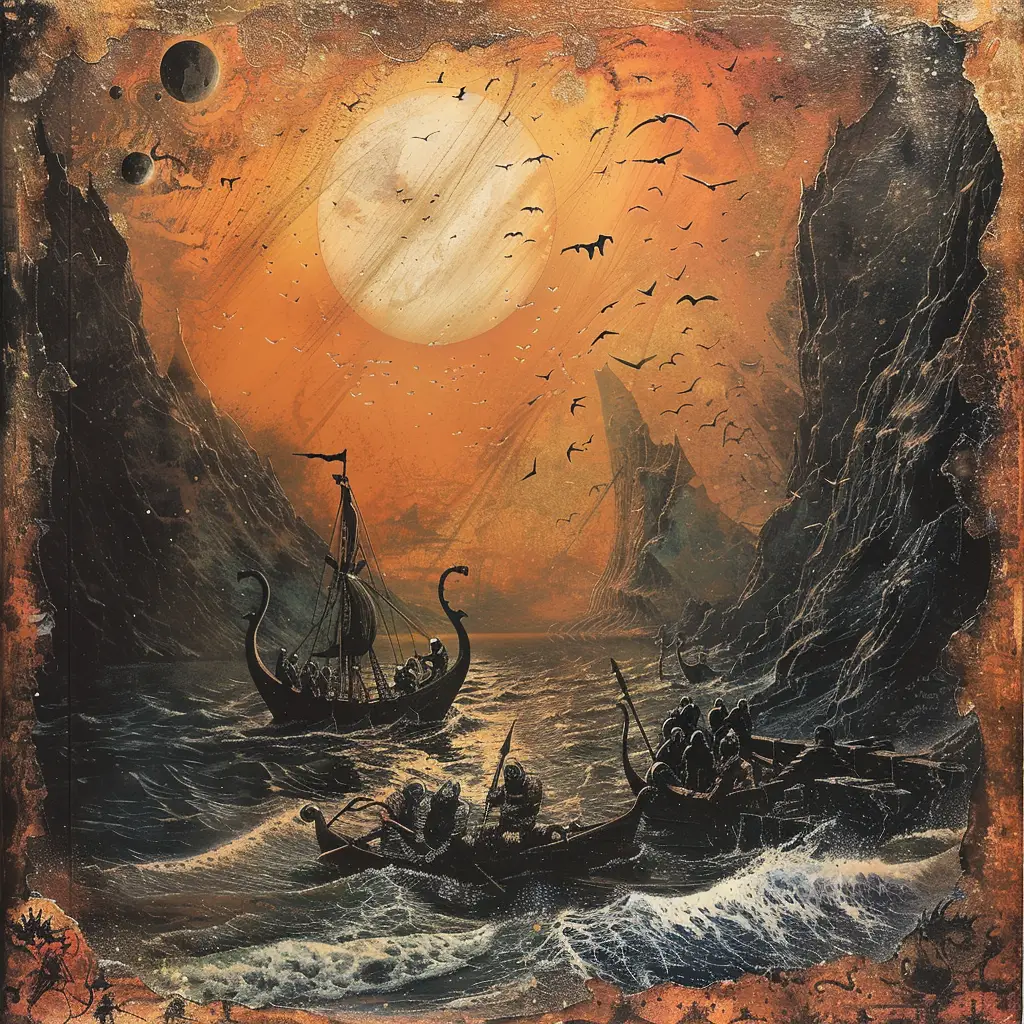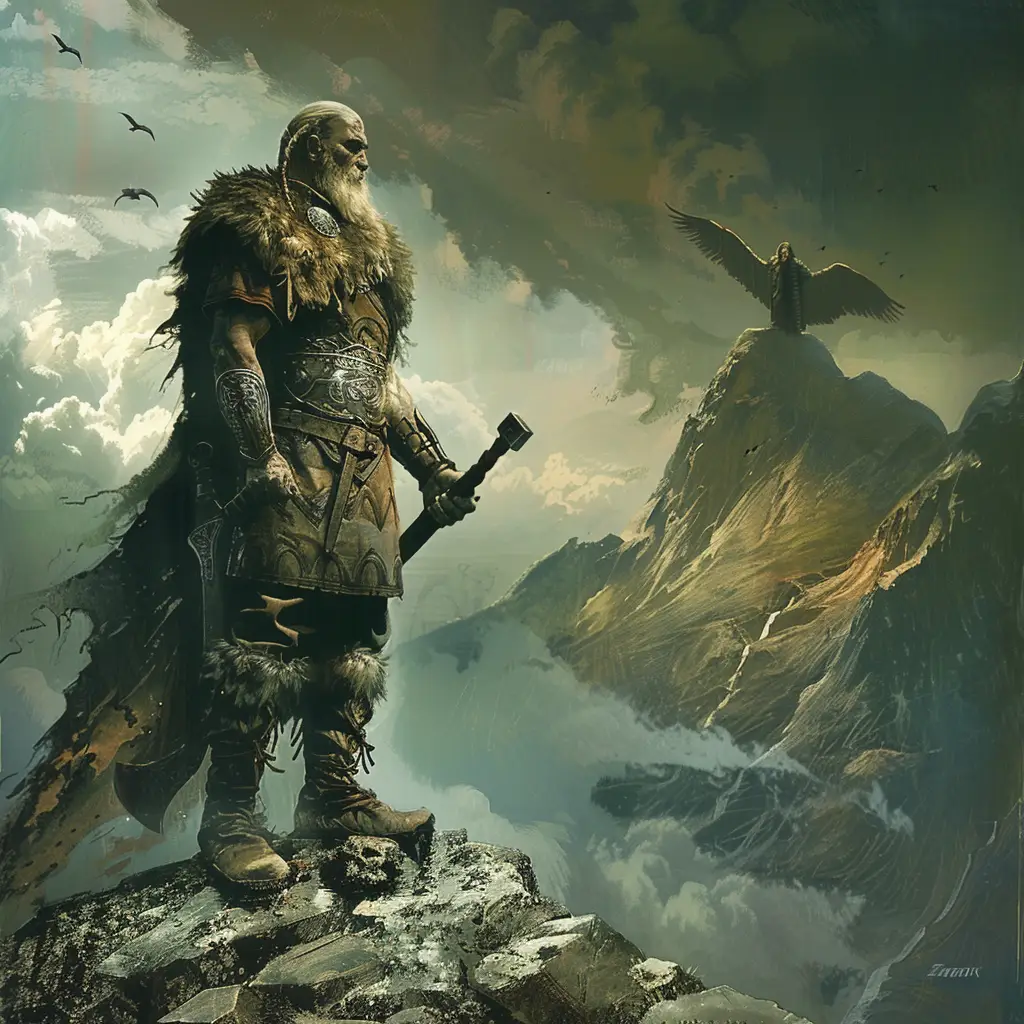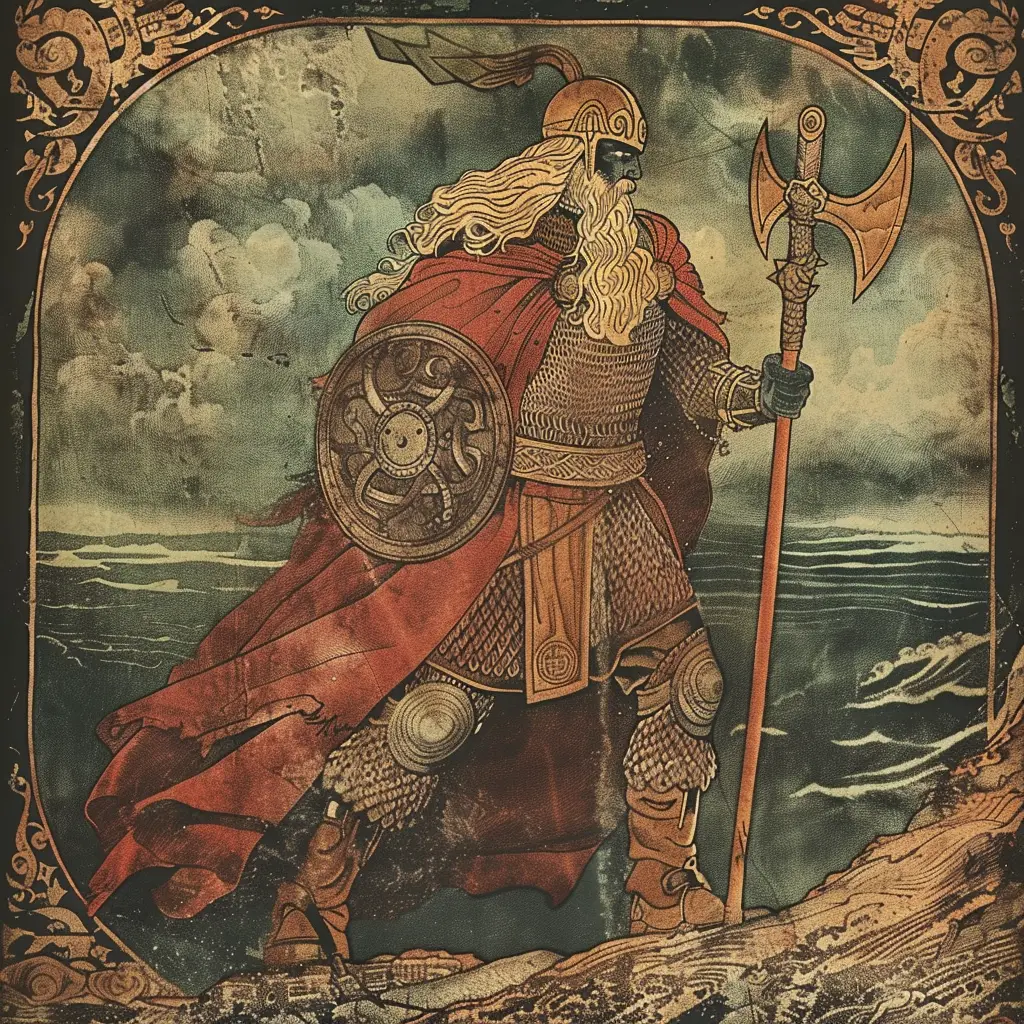The Prose Edda, also known as the Younger Edda, Snorra Edda or simply The Edda is a collection of Norse mythology and poetic theories written in Old Norse by the Icelandic scholar and historian Snorri Sturluson around the year 1220. It is one of the most important sources of Norse mythology and provides valuable insights into the religious beliefs, cosmology, and cultural practices of the Norse people.
It serves as a guide to Norse mythology, offering both a collection of myths and legends as well as a treatise on the poetic techniques of skaldic verse, the intricate and highly stylized poetry of the Viking Age.
The Prose Edda is divided into four parts:
Gylfaginning (“The Beguiling of Gylfi”) This section of the Prose Edda presents a framing narrative where King Gylfi of Sweden disguises himself as an old man named Gangleri and visits the gods in Asgard. He engages in a dialogue with the gods, who explain the creation of the world, the nature of the gods and giants, and various mythological stories, including the adventures of Odin, Thor, Loki, and other Norse deities.
Prologue: This section introduces Norse gods and myths but places them within a Christianised context, interpreting the gods as deified humans or ancestors rather than true gods. This prologue reflects Snorri’s attempt to reconcile Norse mythology with Christian beliefs.
Skáldskaparmál (“The Language of Poetry”) This part of the Prose Edda focuses on the art of Norse poetry and includes numerous myths and legends used as examples to illustrate poetic techniques. It also provides a glossary of kennings (poetic metaphors) and other poetic devices commonly employed by Norse poets.
Háttatal (“Enumeration of Meters”) The final section of the Prose Edda is a catalogue of poetic meters used in Norse poetry, along with examples of each meter composed by Snorri Sturluson himself.
Importance of the Prose Edda
The Prose Edda is essential for preserving the stories and beliefs of pre-Christian Norse culture, including tales of gods like Odin, Thor, and Loki, as well as the creation of the world and the fate awaiting it at Ragnarök. It also helps illuminate the worldview and culture of the Norse people. Because much of Norse mythology was passed down orally, Snorri’s work offers an invaluable written account, helping scholars and enthusiasts understand the beliefs, art, and literature of the Viking Age.
The Prose Edda is sometimes confused with the Poetic Edda which is a separate collection of mythological and heroic poems. Both of these form the foundation of what we know about Norse mythology and continues to inspire modern literature, art, and popular culture today.



